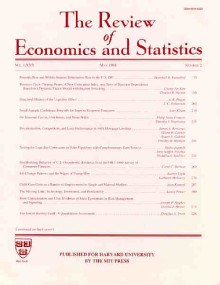
Bosker, M., Buringh, E. and \van Zanden\, J. (2013). From Baghdad to London: unravelling urban development in Europe, the Middle East and North Africa, 800-1800 Review of Economics and Statistics, 95(4):1418--1437.
-
Affiliated author
-
Publication year2013
-
JournalReview of Economics and Statistics
This paper empirically investigates why, between 800 and 1800, the urban center of gravity moved from the Islamic world to Europe. Using a large new city-specific data set covering Europe, the Middle East, and North Africa, we unravel the role of geography and institutions in determining long-run city development in the two regions. We find that the main reasons for the Islamic world's stagnation and Europe's long-term success are specific to each region: any significant positive interaction between cities in the two regions hampered by their different main religious orientation. Together, the long-term consequences of a different choice of main transport mode (camel versus ship) and the development of forms of local participative government in Europe that made cities less dependent on the state explain why Europe's urban development eventually outpaced that in the Islamic world.